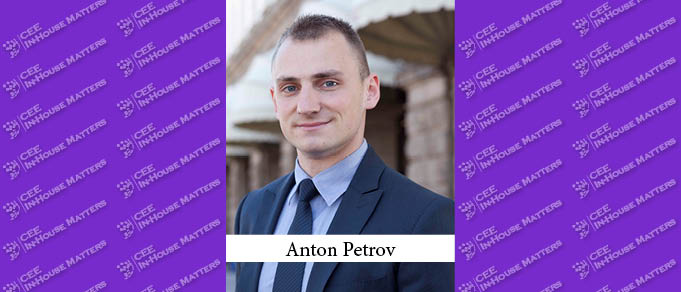Anton Petrov, Head International Legal Affairs and Deputy Director Legal at First Investment Bank in Sofia, Bulgaria, shares tips and tricks for managing relationships with external counsel.
Executives in a lot of corporations have developed a resentment of the law, of lawyers, and of law firms, meaning that general counsel often have to maneuver in a harsh environment. This was first recognized a couple of decades ago in the USA, but I am confident it still holds true in many places around the world today. More and more executives, however, are beginning to see that the law’s impact on their corporations is constant and largely unavoidable. The days of episodic relationships with laws and regulations are long gone. The sums of money involved and the impact of these laws and regulations on the business are of the highest importance. As members of the in-house legal team, our job, therefore, is a very hard one: not only do we have to provide the best legal advice and assistance to our company, but we also need to make sure that the company receives optimal services from outside legal counsel.
Managing outside legal counsel is a complicated and dynamic exercise, from setting and agreeing on a scope of work and a budget that is acceptable, to executing an engagement agreement, providing instructions, and coordinating the actual work. But before I enter the essence of the topic, I should devote a few words to why an in-house team would need the assistance of outside counsel, and how to find one.
Corporations have gone a long way from the formerly-common “single firm, single lawyer” environment, and nowadays more and more are building small law firms within their organizations. However, most of the work handled in-house is related to the core business of the company. We are living in an era of proliferation of laws. The number of regulations continues to escalate in all areas, from payments to taxes to consumerism. This has dramatically increased the responsibilities of the in-house team – and of the GC in particular. The explosion of new laws and intensifying regulatory enforcement has resulted in an increased need for sophisticated legal advice, which is usually provided externally. External law firms generally offer the necessary specialized expertise, an independent perspective, and sheer numbers necessary to address the challenging problems that the business world is facing now more than ever. Therefore, when we, as in-house legal team members, identify the need for such expertise, we should try to select external counsel that is most suitable to help us. Naturally, we would want to find a law firm with excellent technical expertise in the relevant field of law and vast experience with similar issues. Nevertheless, although really important, technical and practical knowledge are not per se equal to great service, which would typically require a mixture of these with a number of other not-less-important qualities and factors, such as reliability, readiness to meet the client’s preferred engagement mechanics, willingness to get to know the client and focus on what is important to it, comprehension of the market, and ability to properly assess the work to be provided and set a reasonable price for it.
When we start asking around or otherwise researching who does quality work in a specific area, the names of certain firms will inevitably come up. Once we invite their representatives to come in and make a pitch, my advice would be to try to find out who has really invested some energy into understanding our perspective on the particular matter. Then, in as much detail as possible, discuss with the firm anything you might consider important to allow you, as the one having overall responsibility for the matter, to be able to do your job both effectively and efficiently. Let me provide a practical example: Under Bulgarian law, the fees provided by a Bulgarian company to a foreign law firm are generally subject to the so-called withholding tax, requiring the payer to withhold the amount of the respective tax from the payment. This tax is usually subject to relief provided that the payee is willing to produce and hand over to the payer a set of standard WHT relief documents in advance of payment. However, as a rule of thumb, fees for the services of law firms are exclusive of any taxes or disbursements. Therefore, your budget for the respective project may be significantly affected by the readiness of the foreign law to cooperate in a rather administrative matter. And you may ultimately choose between two otherwise equally good law firms based specifically on their willingness to help you be more efficient from a financial point of view.
Now that we have identified the right counsel for the job, we can move on to the challenges of managing our relationship with that counsel and what the insiders can do to address them.
Successful management of the relationship with outside counsel often involves a delicate balance between cooperation and oversight. One should remember that assigning work to an outside counsel does not free the in-house team from its responsibility with respect to a specific matter or project.
To begin with, the in-house team still needs to gather the necessary information, compile and structure it, and communicate it safely to the outside counsel.
Moreover, the in-house team usually assumes responsibility for the budget and therefore needs to ensure there is no duplication of efforts or inefficiencies on the part of the outside counsel, as well as time erroneously billed to the wrong project (if outside counsel is used for several different matters). There are many steps that may be taken in this regard, but the key ones, in my view, are to divide the budget as narrowly as possible (e.g., by phases), require detailed legal bills that specifically describe the services performed as well as the respective fee earner, and regularly track spending against the budget.
Also, the in-house counsel generally contributes to team coordination, experience, and a thorough understanding of the needs of the corporate client. After all, the in-house team should be best placed to understand what is at the core of the corporation’s needs.
Sometimes a company may not need to understand every facet of a specific transaction, and the mere fact that a respected outside counsel has been mandated and has assisted on the matter may on its own be sufficient for a decision. Or the external counsel may even be asked to present the case directly to the executives, with no further input from the GC or the in-house team. In such cases, a very hands-on approach would be required from the outside counsel, and this should be clearly communicated and agreed on from the outset. In the majority of cases, however, the in-house team should coordinate the process closely and the GC would often play an active part in extensive discussions about whether to proceed with a deal.
The organization of the work may also depend on the nature of the project. If you need outside counsel for a transaction abroad or with cross-border implications, you may prefer that external lawyers apply the hands-on approach and communicate directly with the outside counsel of the other party (or parties). Such a structure may bring a lot of efficiencies, if applied in the right context. For instance, it may work well for a legal due diligence of a property located abroad – where there is usually a very standardized set of checks that the lawyers should cover – but at the same time prove hugely ineffective where inside coordination is crucial and the outside counsel’s expertise is only needed from time to time.
In view of all of the above, in my opinion, one of the most important tools for effectively managing outside counsel is the structuring of a project plan with clear instructions, which should always be agreed upon from the start and monitored closely. In my experience, outside counsels do not always ask about how the in-house team prefers the work process to be structured. And if you don’t bring this up proactively, or if you are not experienced enough to recognize the need or to be able to assume control over the process at a later stage, you may well find yourself with the job half done in a way other than that which would have best worked for you.
And a final note relating to continuity: the in-house team should look for the best value in legal services in exactly the same way as a company would with respect to services in general. Truly, outside legal counsel usually becomes a trusted partner to the company and most of the large corporations have already established long-term relationships with certain law firms – such as the full-service law firms present in most jurisdictions. Nevertheless, this should not prevent the in-house team from considering alternatives when assigning new work and should stop giving work to under-performers.
By Anton Petrov, Head International Legal Affairs and Deputy Director Legal at First Investment Bank, Bulgaria
This article was published in issue 1.3 of CEE In-House Matters. The full edition is available here in pdf format, here in e-reader format, and here in electronic format.


